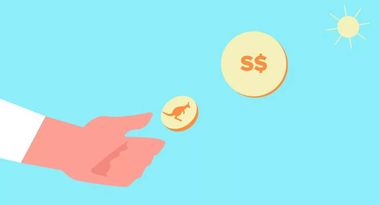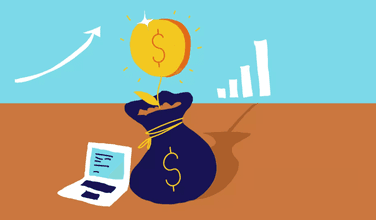What Taxes Do Australian Entrepreneurs Pay in Singapore?
Singapore corporate tax rate is 17% flat for foreigners and locals. The government supports startups with exemptions. And Singapore and Australia have a Double Taxation Agreement to avoid being taxed twice on the same income.

Singapore tax system is one of the best in the world for entrepreneurs. Explore Singapore business opportunities and learn how to benefit from opening your company and paying its taxes here. And since we are on this topic, Osome can help you with accounting!
How do Singapore and Australia corporate taxes compare?
What exemptions are there for start-ups?
How can I qualify for the start-up tax exemption?
What are other taxes on business?
When and how do I submit my taxes?
Can my company lose Singapore tax residency?
If I move to Singapore, what personal taxes will I pay?
What are the benefits of Singapore tax system?
The tax rates in Singapore are simple, transparent and fairly low. The corporate tax rate is 17% flat for both foreign and local entrepreneurs. On top of that, the Singapore government supports startups by giving exemptions for the first three years after company incorporation.
How do Singapore and Australia corporate taxes compare?
While the tax structures are similar, Singapore rates are lower. And since Singapore and Australia have a Double Taxation Agreement, you’re protected from being taxed twice on the same income. Dividends are tax exempt in Singapore, while Australia taxes unfranked dividends at 5-30%. Singapore does not tax on capital gains, whereas in Australia the capital gains tax is at 30%.
Let’s do the math comparing two mature companies with the same profit:
Profit: A$105,000
| Australia | Singapore | |
|---|---|---|
| Tax on profit | 30% | 8.08% |
| Total tax | A$31,500 | A$8,484 |
The effective Singapore tax rate above is calculated with a PTE exemption that we explain below.
What exemptions are there for start-ups?
The Start-Up Tax Exemption (SUTE) provides tax cuts for the first 3 years after Singapore company registration. For the financial years 2019 and 2020 the rules translate into the following effective rates:
- 4.25% on the first S$100,000 (A$104,000) of normal chargeable income
- 8.5% on the next S$100,000 ( A$104,000)
After the first 3 assessment years have expired, you can receive a Partial Tax Exemption (PTE). Here are the effective tax rates:
- 4.25% for the first S$10,000 (A$10,400) of normal chargeable income
- 8.5% on the next S$190,000 (A$200,000)
How can I qualify for the start-up tax exemption?
It is available within the first 3 years after you opened a company in Singapore.
- At least one shareholder has to be a person, not a company and hold more than 10%.
- No more than 20 shareholders altogether.
- Investment holding and property development companies cannot apply.
- You have to be a tax resident in Singapore.
What are other taxes on business?
Singapore declared dividends are not taxable, neither are capital gains. There’s Goods and Services Tax (GST) on supplies made in Singapore but your company only has to register for it if your turnover grows over S$1,000,000 (A$1,040,000). As a GST-registered company, you have to charge GST on your supply. The upside is you can claim the GST suffered on your purchases. If you mainly export your goods abroad, you may apply for an exemption from GST registration.
| Tax | Singapore | Australia |
|---|---|---|
| Corporate Tax | 17% | 30% |
| Capital Gains Tax | nil | 30% |
| GST | 9% after S$1m turnover |
10% |
| Personal Income Tax | 0%–22% progressive rate |
0%–45% progressive rate |
When and how do I submit my taxes?
Taxes are filed annually with IRAS (the tax authority) by November 30th. You report on your income for the previous year. For example, a report on 2018 income is submitted on November 30th, 2019.
You also get to choose the exact evaluation period. It doesn’t have to match a calendar year. For example, if you’ve incorporated in October, you can report your income from the 1st of October to the 30th of September.
Annual reporting is a service regularly provided by local agencies. As they process your documents, they will advise on qualifying for tax exemptions.
| FYE Closing data of your evaluation year |
30 Sep | 31 Mar |
|---|---|---|
| Basis period Your evaluation year, choose convenient dates |
1 Oct 2017 to 30 Sep 2018 |
1 Apr 2018 to 31 Mar 2019 |
| Year of Assessment (YA) When you submit the report |
2019 | 2020 |
| Tax Filing Deadline Always 30 Nov |
30 Nov 2019 | 30 Nov 2020 |
Can my company lose Singapore tax residency?
Yes, if IRAS thinks your “control and management” happens elsewhere. So one important requirement is that your board of directors has to meet and make strategic decisions in Singapore. Having a local executive also helps convince IRAS that your company is resident.
Losing residency means you won’t get most of the exemptions and benefits. Good news is that residency is evaluated on a yearly basis so you can apply again the following year.
If I move to Singapore, what personal taxes will I pay?
The personal tax rate is progressive from 0% to 22%. If you buy a property, tax on property is progressive from 0 to 16%.
Personal tax rate
| Chargeable income (S$) | Estimated tax (S$) | Effective tax rate |
|---|---|---|
| first 20,000 | 0 | 0% |
| next 10,000 | 200 | 2.0% |
| next 10,000 | 350 | 3.5% |
| next 40,000 | 2,800 | 7.0% |
| next 40,000 | 4,600 | 11.5% |
| next 40,000 | 6,000 | 15.0% |
| next 40,000 | 7,200 | 18.0% |
| next 40,000 | 7,600 | 19.0% |
| next 40,000 | 7,800 | 19.5% |
| next 40,000 | 8,000 | 20.0% |
| over 320,000 | 44,550 | 22.0% |
This article was written by experts at Osome – online service for Incorporation, Secretary, and Accounting in Singapore. We help entrepreneurs from the Australia to start and run business, including tax management and filing. We respond fast 24/7 in a secure chat. Learn more and get a free consultation on osome.com







